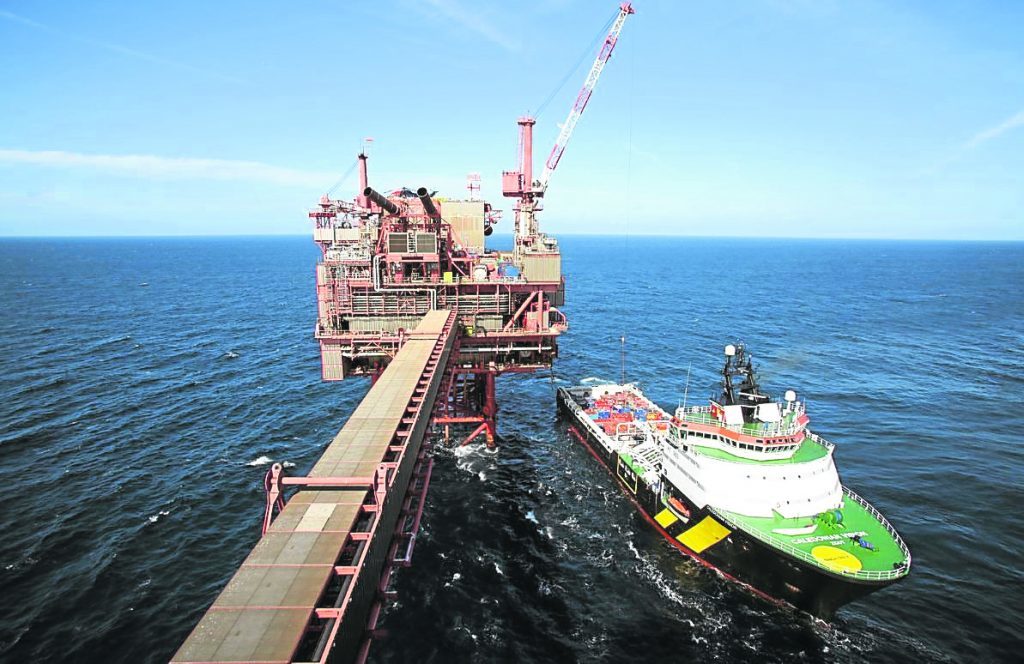
Higher oil prices and industry’s “relentless focus” on efficiency have pushed decommissioning projects further into the future, a flagship report said.
It means the pace of UK North Sea dismantling will be slower over the next decade than previously forecast, according to Oil and Gas UK (OGUK).
In its 2018 Decommissioning Insight, the industry body estimated North Sea dismantling expenditure would hit £15.3 billion over the coming decade.
The figure represents a reduction of 20%, or £4bn, compared with predictions made in last year’s study.
OGUK said the findings showed the sector was making big strides down the path to becoming a global champion in decommissioning excellence.
The report added that savings identified over the last 12 months suggested industry was capable of achieving ambitious cost reduction goals.
In June 2017, the Oil and Gas Authority revealed £59.7bn would have to be spent on decommissioning, but said it would strive to trim the bill to £39.9bn or less.
Realising that objective will be key to unlocking the global market, OGUK said in its report, published yesterday at the Offshore Decommissioning Conference in St Andrews.
The UK continental shelf is the world’s most mature oil province, which gives the domestic supply chain a “first-mover advantage” over rival basins, the authors said.
The global decommissioning market is worth more than £60bn over the next decade and companies which show “mastery” will be well positioned to capitalise, OGUK said.
UK Decom fact box:
– £1.5bn per year to be spent on decom over next decade
– 49% of spend is on well plugging and abandonment
– 1,465 UK wells to be decommissioned through 2027
– Well decom costs down 26% across North Sea
– 605,000 tonnes of topsides slated for removal
– Onshore disposal makes up 2% of total spend
– 48% of sending focused on North Sea
The organisation said £1.5bn per year would be spent on dismantling over the coming decade in the UK, down from previous forecasts of £1.8bn.
Better investment conditions and the sector’s efficiency drive have helped attracted a wave of fresh interest from private-equity-backed newcomers, it said.
Those companies are determined to prolong production from older fields they have bought from majors, leading to the deferral of dismantling work.
Also, a higher volume of decommissioning projects have been carried out, allowing operators and contractors to build up their experience and take a bite out of costs.
OGUK decommissioning manager Joe Leask said the UK was continuously expanding its knowledge and getting more efficient.
He said: “The efficiency improvements we see in decommissioning reflect what is being achieved across the oil and gas lifecycle and attracting fresh investment in the basin, to extend the life of many assets and increase economic recovery.
“The sector’s cost leadership demonstrates we have the capacity and capability to deliver the 35% cost reduction target set by the OGA.
“Meeting and then beating this target will be key to unlocking the global market, allowing the UK to reinforce its position as world-leading.”
Mr Leask also praised the UK and Scottish governments for their support.
In last month’s Budget, Chancellor Philip Hammond issued a call for evidence on plans to make Scotland a global decommissioning hub.
The Scottish Government launched the Decommissioning Challenge Fund (DCF) in February 2017 with the intention of improving ports and supporting innovative salvage and transport methods.
Grants worth £4.8m were dished out to support various projects last year. In August, Mr Wheelhouse was in Aberdeen to pledge a further £5m for the third round of the DCF.
Recommended for you

